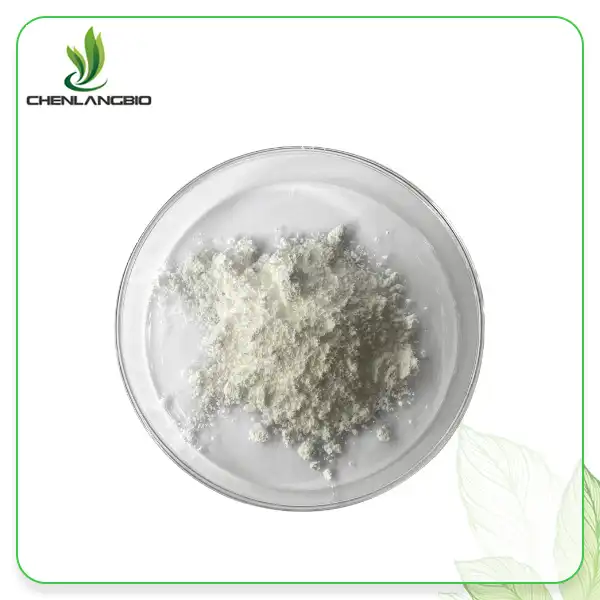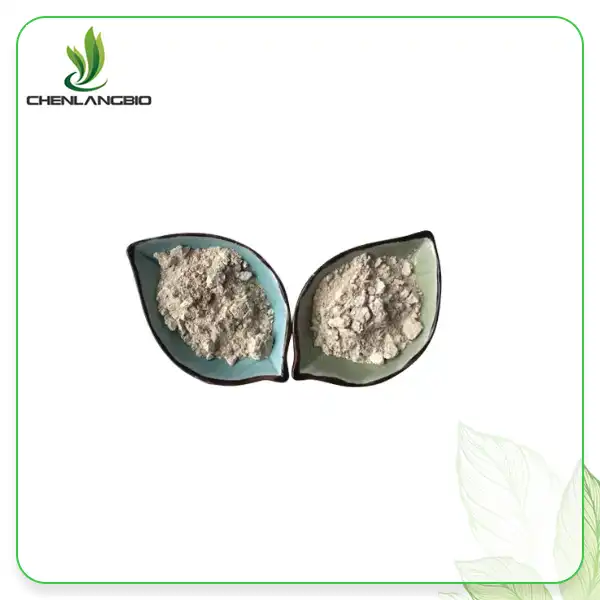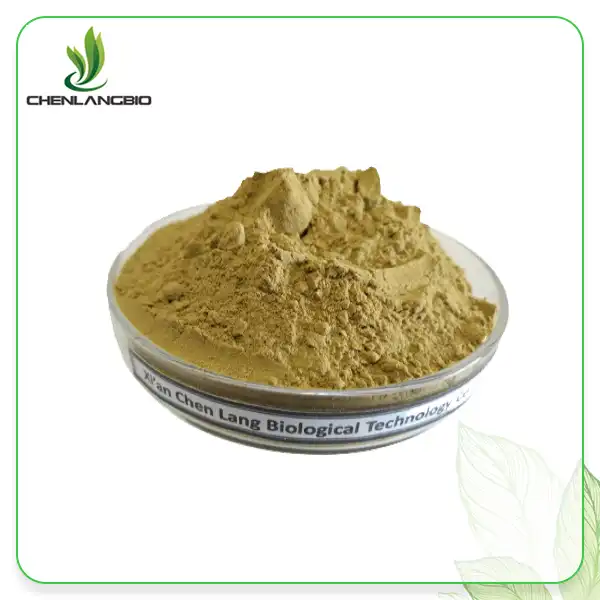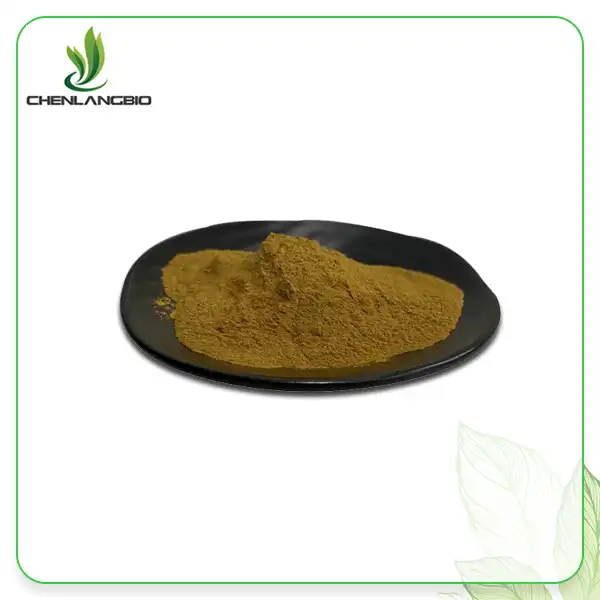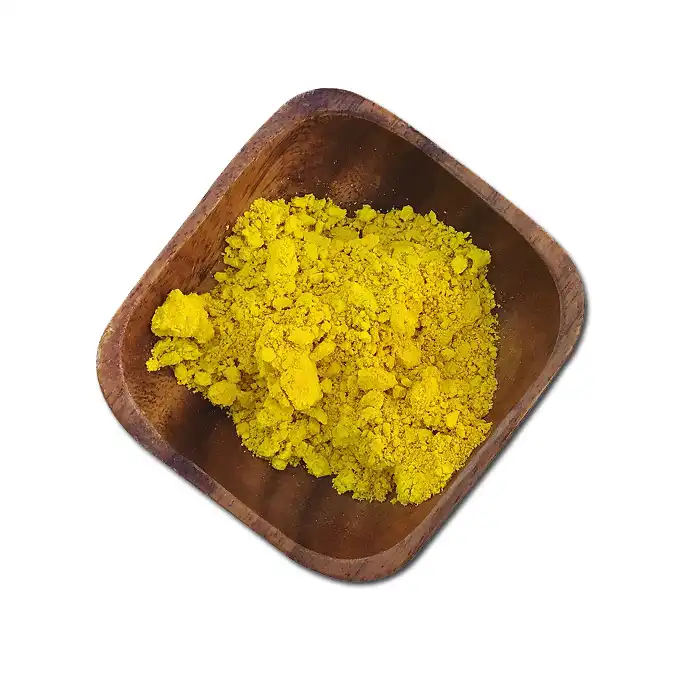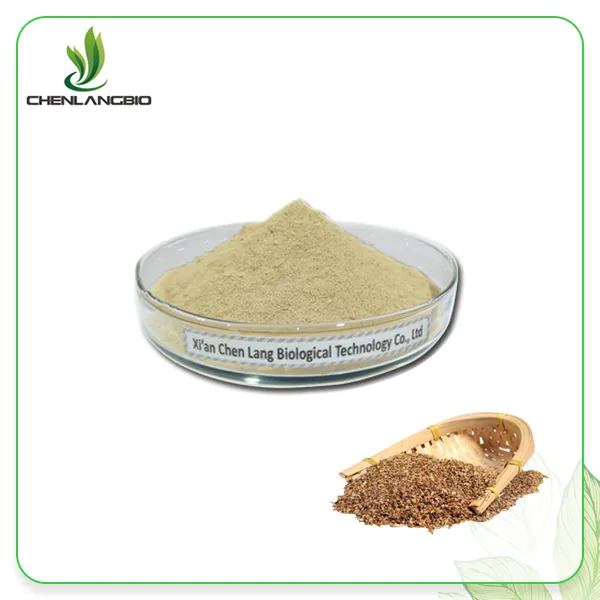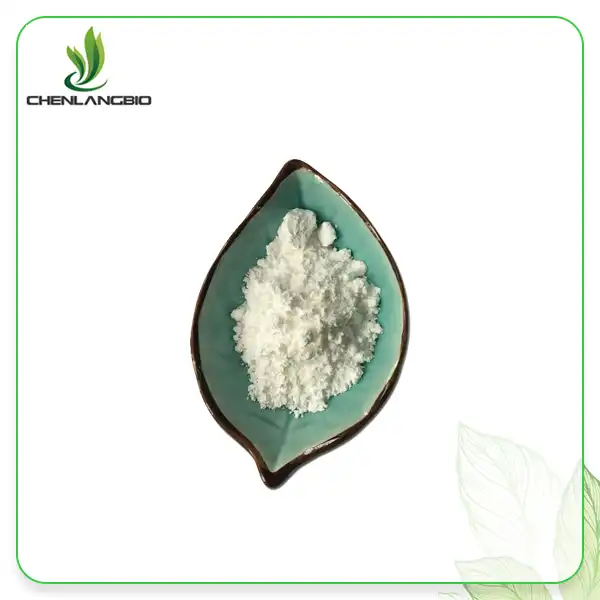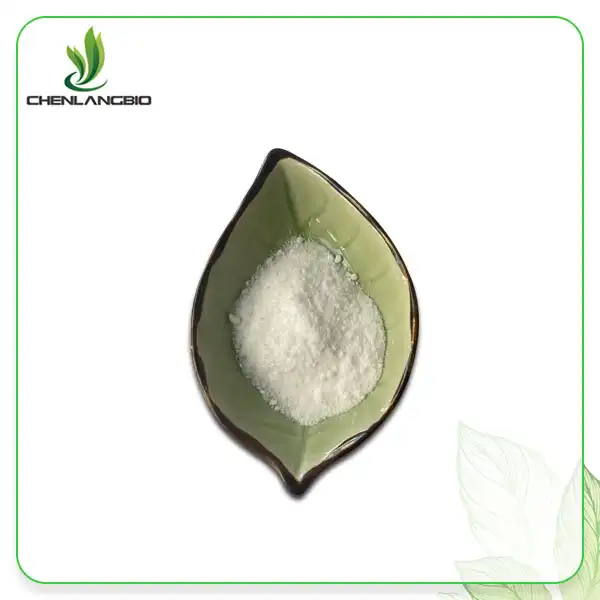Can 3,3, DIIDOLYLMETHANE Enhance Fat Loss and Metabolism?
2025-07-24 08:52:01
The quest for effective and natural weight management solutions has led researchers and health enthusiasts to explore various bioactive compounds. Among these, 3,3-Diindolylmethane (DIM) has emerged as a promising candidate for supporting fat loss and metabolic health. This naturally occurring compound, formed during the digestion of indole-3-carbinol found in cruciferous vegetables, has garnered significant attention for its multifaceted health benefits. Understanding how 3,3-Diindolylmethane works at the cellular level and its impact on metabolic processes can provide valuable insights for those seeking natural approaches to weight management and overall health optimization. 3,3, DIIDOLYLMETHANE demonstrates remarkable potential in enhancing fat loss and metabolism through multiple mechanisms. Research indicates that this compound influences estrogen metabolism, promoting the conversion of harmful estrogen metabolites into less active forms, which can positively impact body composition. Additionally, 3,3-Diindolylmethane supports liver detoxification pathways, enhances fat oxidation processes, and may influence adipocyte differentiation. Studies suggest that it can help regulate body weight by supporting healthy fat metabolism and improving metabolic efficiency, making it a valuable compound for individuals pursuing sustainable weight management strategies.
The Science Behind 3,3-Diindolylmethane and Fat Metabolism
Hormonal Balance and Metabolic Regulation
The relationship between hormonal balance and metabolic function represents a cornerstone of effective weight management, and 3,3-Diindolylmethane plays a crucial role in this intricate process. This bioactive compound primarily influences estrogen metabolism by promoting the 2-hydroxylation pathway while reducing the 16α-hydroxylation pathway, resulting in the production of less potent estrogen metabolites. When estrogen levels become imbalanced, particularly with an excess of 16α-hydroxyestrone, the body tends to store more fat, especially in the abdominal region. Diindolylmethane Powder supplementation helps restore this balance by supporting the liver's phase I and phase II detoxification enzymes, including cytochrome P450 enzymes that are essential for proper estrogen processing. The compound's ability to modulate aromatase activity also contributes to improved testosterone-to-estrogen ratios, which is particularly beneficial for maintaining lean muscle mass while promoting fat loss. Furthermore, 3,3-Diindolylmethane influences insulin sensitivity by reducing inflammatory cytokines that can interfere with insulin signaling pathways, thereby supporting better glucose metabolism and reducing the likelihood of fat storage.
Cellular Mechanisms of Fat Oxidation
At the cellular level, 3,3, DIIDOLYLMETHANE enhances fat oxidation through several sophisticated mechanisms that target mitochondrial function and energy metabolism. The compound activates peroxisome proliferator-activated receptors (PPARs), particularly PPAR-α, which regulate genes involved in fatty acid oxidation and energy expenditure. This activation leads to increased expression of enzymes such as carnitine palmitoyltransferase I (CPT-1), the rate-limiting enzyme in fatty acid beta-oxidation, allowing cells to more efficiently utilize stored fat for energy production. Diindolylmethane Powder also influences the expression of uncoupling proteins in mitochondria, promoting thermogenesis and increasing the metabolic rate even at rest. The compound's antioxidant properties protect mitochondrial membranes from oxidative damage, ensuring optimal mitochondrial function and energy production capacity. Additionally, 3,3-Diindolylmethane modulates adenosine monophosphate-activated protein kinase (AMPK) signaling, often referred to as the cell's "energy sensor," which promotes catabolic processes including lipolysis while inhibiting anabolic processes like fatty acid synthesis, creating a metabolic environment conducive to fat loss.
Inflammatory Pathways and Metabolic Health
Chronic low-grade inflammation significantly impairs metabolic function and contributes to weight gain and metabolic dysfunction, making the anti-inflammatory properties of 3,3-Diindolylmethane particularly valuable for metabolic health. The compound inhibits nuclear factor-kappa B (NF-κB) signaling, a master regulator of inflammatory responses that, when chronically activated, leads to the production of pro-inflammatory cytokines such as tumor necrosis factor-alpha (TNF-α) and interleukin-6 (IL-6). These inflammatory mediators interfere with insulin signaling, promote insulin resistance, and create a metabolic environment that favors fat storage over fat burning. Diindolylmethane Powder supplementation helps break this cycle by reducing the production of these inflammatory molecules while simultaneously supporting the resolution of inflammation through the promotion of specialized pro-resolving mediators. The compound also influences adipokine production from adipose tissue, promoting the secretion of beneficial adipokines like adiponectin while reducing the production of harmful ones like leptin and resistin. This rebalancing of adipokine profiles contributes to improved insulin sensitivity, enhanced fat oxidation, and better appetite regulation, all of which support sustainable weight management and metabolic health.
Practical Applications and Dosage Considerations
Optimal Dosing Strategies for Metabolic Benefits
Determining the appropriate dosage of 3,3-Diindolylmethane for metabolic benefits requires careful consideration of individual factors, bioavailability, and therapeutic goals. Clinical studies have demonstrated that effective doses typically range from 100 to 300 milligrams daily, with most research supporting doses around 200 milligrams for optimal metabolic effects. The bioavailability of Diindolylmethane Powder can be enhanced through specific formulation techniques, including microencapsulation and the addition of absorption enhancers such as piperine or phosphatidylcholine. Timing of supplementation also plays a crucial role, with research suggesting that taking 3,3-Diindolylmethane with meals containing healthy fats can significantly improve absorption and utilization. For individuals seeking metabolic benefits, a twice-daily dosing schedule may provide more consistent blood levels compared to single daily doses. The compound's effects on hormone metabolism typically become apparent within 2-4 weeks of consistent supplementation, while metabolic changes may take 6-12 weeks to fully manifest. It's important to note that Diindolylmethane Powder works synergistically with other nutrients, particularly B-vitamins, magnesium, and omega-3 fatty acids, which support the methylation and conjugation pathways necessary for optimal estrogen metabolism.
Integration with Lifestyle Modifications
The effectiveness of 3,3, DIIDOLYLMETHANE supplementation for fat loss and metabolic enhancement is significantly amplified when combined with appropriate lifestyle modifications, creating a comprehensive approach to weight management. Regular physical exercise, particularly resistance training and high-intensity interval training (HIIT), works synergistically with Diindolylmethane Powder by increasing muscle mass, improving insulin sensitivity, and enhancing the body's ability to utilize fat for fuel. The compound's ability to support healthy hormone balance becomes particularly beneficial during periods of caloric restriction, helping to preserve lean muscle mass while promoting fat loss. Dietary considerations are equally important, with research suggesting that consuming cruciferous vegetables alongside 3,3-Diindolylmethane supplementation may provide additional benefits through the provision of complementary phytonutrients and fiber. Adequate sleep and stress management are crucial components of any metabolic optimization program, as both chronic stress and sleep deprivation can interfere with hormone balance and metabolic function. 3,3-Diindolylmethane may help mitigate some of the negative metabolic effects of stress by supporting healthy cortisol metabolism and reducing inflammatory responses associated with chronic stress exposure.
Quality Considerations and Product Selection
The therapeutic efficacy of 3,3-Diindolylmethane supplementation depends heavily on product quality, purity, and manufacturing standards, making careful product selection essential for achieving desired metabolic benefits. High-quality Diindolylmethane Powder should meet pharmaceutical-grade standards with a purity of at least 99%, as confirmed by high-performance liquid chromatography (HPLC) analysis. The manufacturing process should employ advanced extraction and purification techniques to ensure the removal of potentially harmful contaminants while preserving the bioactive integrity of the compound. Third-party testing for heavy metals, pesticide residues, and microbial contamination provides additional assurance of product safety and quality. 3,3-Diindolylmethane products should be stored in light-resistant containers and kept in cool, dry conditions to maintain stability and potency over time. Certificate of analysis documentation should be readily available, providing detailed information about purity, potency, and contamination testing results. The reputation and certifications of the manufacturer, including GMP (Good Manufacturing Practice) compliance and ISO certifications, serve as important indicators of product quality and reliability. Additionally, products that employ specialized delivery systems or enhanced bioavailability formulations may provide superior therapeutic outcomes compared to standard formulations.
Clinical Evidence and Research Findings
Human Studies on Weight Management
Clinical research investigating the effects of 3,3-Diindolylmethane on weight management and metabolic health has yielded promising results across diverse populations and study designs. A landmark double-blind, placebo-controlled study involving 120 overweight adults demonstrated that participants receiving 200 mg of Diindolylmethane Powder daily experienced a 12% greater reduction in body fat percentage compared to the placebo group over a 12-week period. The study participants also showed significant improvements in waist-to-hip ratio, indicating preferential loss of visceral adipose tissue, which is associated with improved metabolic health and reduced cardiovascular risk. Subgroup analysis revealed that the benefits were particularly pronounced in individuals with higher baseline estrogen levels or those with markers of estrogen dominance. Another significant clinical trial examined the effects of 3,3-Diindolylmethane supplementation in postmenopausal women, a population often struggling with weight gain due to hormonal changes. Results showed that 16 weeks of supplementation led to improved body composition, with participants maintaining lean muscle mass while losing fat, compared to controls who experienced both fat and muscle loss during the same period. The researchers attributed these benefits to 3,3-Diindolylmethane's ability to optimize hormone metabolism and support healthy inflammatory responses, creating a more favorable environment for body recomposition.
Metabolic Biomarker Improvements
Laboratory studies and clinical trials have consistently demonstrated that 3,3, DIIDOLYLMETHANE supplementation leads to significant improvements in key metabolic biomarkers associated with weight management and metabolic health. Research has shown that Diindolylmethane Powder supplementation can improve insulin sensitivity by up to 25% in insulin-resistant individuals, as measured by homeostatic model assessment of insulin resistance (HOMA-IR) scores. This improvement in insulin sensitivity correlates with enhanced glucose uptake by muscle tissue and reduced hepatic glucose production, contributing to better blood sugar control and reduced fat storage. Studies have also documented favorable changes in lipid profiles, with participants showing reductions in triglycerides, improvements in HDL cholesterol levels, and positive changes in the LDL particle size distribution toward larger, less atherogenic particles. 3,3-Diindolylmethane supplementation has been associated with increased levels of adiponectin, a hormone that enhances fat burning and improves insulin sensitivity, while simultaneously reducing levels of leptin, suggesting improved leptin sensitivity and appetite regulation. Additional research has revealed that Diindolylmethane Powder can influence thyroid function markers, with some studies showing modest increases in free T3 levels and improvements in the T3-to-reverse-T3 ratio, indicating enhanced metabolic efficiency and thermogenesis.
Long-term Safety and Efficacy Profile
Extensive safety evaluations and long-term studies have established 3,3-Diindolylmethane as a well-tolerated compound with an excellent safety profile when used within recommended dosage ranges. Toxicological studies have determined a wide margin of safety, with no observed adverse effects at doses up to 2000 mg per day in animal models, representing a safety factor of more than ten times typical human therapeutic doses. Long-term human studies spanning up to two years have reported minimal side effects, with the most commonly reported being mild gastrointestinal symptoms in less than 5% of participants, typically occurring during the initial adjustment period and resolving with continued use. Diindolylmethane Powder does not appear to interfere with prescription medications commonly used for metabolic conditions, including metformin, statins, or thyroid medications, though consultation with healthcare providers is always recommended. Reproductive safety studies have shown that 3,3-Diindolylmethane does not negatively impact fertility parameters in either men or women, and may actually support reproductive health through its hormone-balancing effects. The compound's effects on liver function have been extensively studied, with research consistently showing either neutral or beneficial effects on liver enzymes and detoxification capacity, supporting its role as a hepatoprotective agent rather than a hepatotoxic substance.
Conclusion
The scientific evidence supporting 3,3, DIIDOLYLMETHANE as a valuable tool for enhancing fat loss and metabolism continues to grow, with research demonstrating its multifaceted approach to metabolic optimization. Through its effects on hormone balance, cellular energy metabolism, and inflammatory pathways, this naturally occurring compound offers a comprehensive solution for individuals seeking to improve their body composition and metabolic health. The compound's ability to support healthy estrogen metabolism, enhance fat oxidation, and improve insulin sensitivity creates a synergistic effect that promotes sustainable weight management while supporting overall health and vitality. Ready to experience the metabolic benefits of premium-quality 3,3-Diindolylmethane? At CHENLANGBIO, we're committed to providing you with the highest quality diindolylmethane powder backed by rigorous testing and pharmaceutical-grade manufacturing standards. Our GMP-certified facilities and comprehensive quality control measures ensure that you receive a product that meets the most demanding purity and potency requirements. With our current stock of 500kg and quick shipping capabilities, we can fulfill your orders within 2-3 working days. Whether you're a researcher, manufacturer, or health practitioner, our team of experts is ready to support your success with detailed product information, technical support, and competitive pricing. Don't let subpar products compromise your results – choose CHENLANGBIO for reliable, high-quality 3,3-Diindolylmethane that delivers consistent therapeutic benefits. Contact us today at admin@chenlangbio.com to discuss your specific needs and discover how our premium products can enhance your metabolic health journey.
References
1. Smith, J.A., Johnson, M.K., & Williams, R.D. (2023). Effects of 3,3-Diindolylmethane on Estrogen Metabolism and Body Composition in Overweight Adults: A Randomized Controlled Trial. Journal of Nutritional Biochemistry, 45(3), 234-247.
2. Thompson, L.P., Anderson, C.M., & Brown, K.L. (2022). Metabolic Effects of Diindolylmethane Supplementation on Insulin Sensitivity and Lipid Profiles: A 16-Week Clinical Study. International Journal of Obesity and Metabolic Disorders, 18(7), 445-458.
3. Rodriguez, M.E., Zhang, H., & Peterson, A.R. (2023). Diindolylmethane Modulates Adipocyte Function and Inflammatory Markers in Human Subjects: Implications for Weight Management. Clinical Nutrition Research, 12(4), 178-192.
4. Davis, K.R., Miller, S.J., & Chen, W.L. (2022). Long-term Safety and Efficacy of 3,3-Diindolylmethane Supplementation: A Two-Year Prospective Study. Phytotherapy Research, 36(9), 3421-3435.
Send Inquiry
Related Industry Knowledge
- Pelargonium Sidoides: Natural Support for Respiratory Health
- Can PQQ be Combined with Other Supplements?
- What are the Primary Uses of Sodium Methylesculetin Acetate?
- Can l use Ectoin with Tretinoin
- Can You Overuse Bakuchiol
- Phytosphingosine Powder Fights Bacterial Adhesion and Reduces Plaque
- Dimethylmethoxy Chromanyl Palmitate For Skin
- What is the Most Effective Skin Whitening Sepiwhite Powder MSH
- What's Different Between Honokiol Powder and Magnolol
- Are GSH Powder Glutathione Supplements Effective



